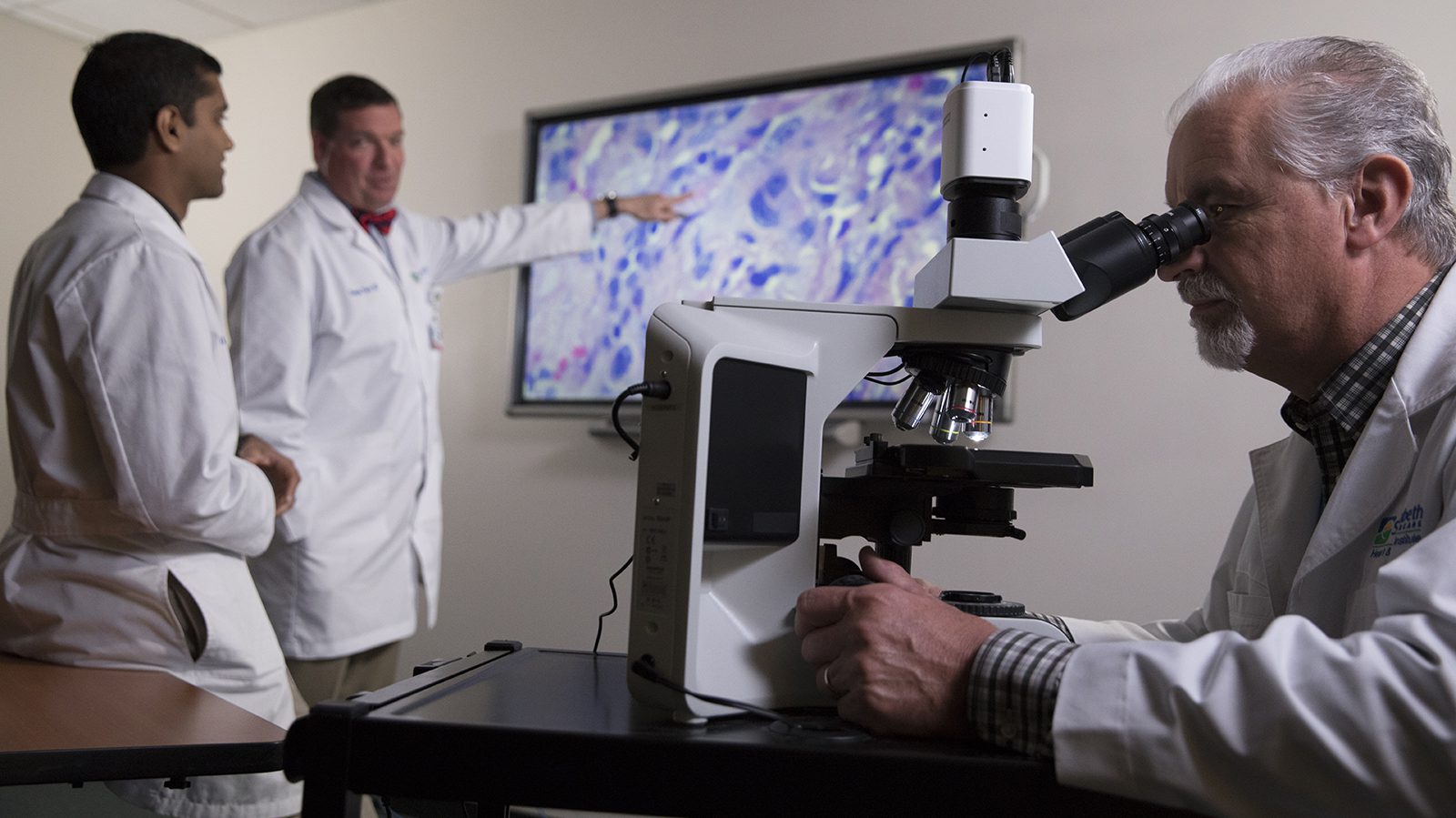Rectal Cancer
Rectal cancer starts in the last several inches of the large intestine, also called the rectum. Colon and rectal cancer are similar because they typically develops in the form of polyps. Rectal polyps are a small clump of cells that form on the lining of the rectal. They start as harmless growths, but over time some can develop into rectal cancer. The treatments for colon and rectal cancer are very different as the surgery is more complex. Treatment options have advanced significantly in the last decade.
About Rectal Cancer
Make an appointment
For more information, please contact your oncologist or the Cancer Care Center at (859) 301-4000.
Risk Factors for Rectal Cancer
Rectal cancer is associated with a number of risk factors, including:
- Age.
- Colorectal polyps.
- Family history of rectal cancer.
- History of inflammatory bowel disease.
- Obesity.
- Poor diet.
- Radiation therapy for previous cancer.
Approximately 5 to 10% of people who get rectal cancer have a specific mutation in their DNA that increases their risk of getting rectal cancer. Our heredity cancer program can provide important information to you and your family so we can take steps early to identify cancer early, when it is most treatable, and plan your treatment.
Causes of Rectal Cancer
The cause of rectal cancer is unknown, but the risk of developing the disease is higher if you have any of the known risk factors.
Symptoms of Rectal Cancer
Symptoms of rectal cancer include:
- Abdominal pain.
- Blood in the stool.
- Changes in bowel habits.
- Constipation.
- Diarrhea.
- Loss of appetite.
- Unexplained fatigue.
- Unexplained weight loss.
Diagnosing Rectal Cancer
If your doctor suspects that you have rectal cancer, we may run tests to determine the stage of cancer to develop the best treatment plan. These tests may include:
- Blood tests to check genetic makeup and blood markers.
- Colonoscopy and biopsy (tissue sample).
- CT scan.
- PET/CT scan.
- Genetic testing.
- MRI.
- Stool test.
At St. Elizabeth Healthcare, we have an MRI test specifically for pelvis and colorectal cancer. Our radiology team also has specialists dedicated to diagnosing colorectal and pelvic cancer.
If you’ve been diagnosed with rectal cancer, we can provide a second opinion and present treatment options.
Treating Rectal Cancer
At St. Elizabeth Healthcare, we believe in caring for you, not just treating your cancer. Our holistic approach means we combine cancer treatment with working to minimize side effects and help you manage them. Our goal is to make you as comfortable as possible while we use innovative approaches to treat your cancer.
Your treatment plan for rectal cancer usually begins with surgery and uses a combination of other treatments depending on the stage of your cancer or if it has spread. Your treatment may include:
Preventing Rectal Cancer
Rectal cancer is preventable with a healthy lifestyle and proper screening. Most rectal cancers form from polyps that can be detected through a colonoscopy. Colonoscopies or other colorectal cancer screening recommendations are based on medical and family history. Unless you have a family history, are at high risk, or develop symptoms, rectal cancer screenings start at age 45.
Positive lifestyle choices can also lower your risk of rectal cancer. Lifestyle changes that can reduce your risk include:
Your Cancer Care Team
The team includes medical oncologists specializing in immunotherapy and precision medicine, surgical oncologists, radiation oncologists, interventional radiologists, thoracic surgeons, pain management specialists, genetic counselors, pathologists, nutritionists, pharmacists, nurses and support staff. They work together to create a treatment plan that’s just right for you.
Schedule Your Appointment Today
Call Your Primary Care Provider
Talk to your primary care physician about when you should have your cancer screenings. Call (800) 737-7900.


